A precisely observed, superbly crafted novel, The End of the Point by
Elizabeth Graver charts the dramatic changes in the lives of three
generations of one remarkable family, and the summer place that both
shelters and isolates them.
Ashaunt Point, Massachusetts, has anchored life for generations of the Porter family, who summer along its remote, rocky shore. But in 1942, the U.S. Army arrives on the Point, bringing havoc and change. That summer, the two older Porter girls--teenagers Helen and Dossie--run wild. The children's Scottish nurse, Bea, falls in love. And youngest daughter, Janie, is entangled in an incident that cuts the season short and haunts the family for years to come.
An unforgettable portrait of one family's journey through the second half of the twentieth century, The End of the Point artfully probes the hairline fractures hidden beneath the surface of our lives and traces the fragile and enduring bonds that connect us.
The strategy on the gridiron of Friday Night Lights is nothing compared to the savagery of coming home . . .
Queenie Wake has just been fired from her job as a chef for not allowing a customer to use ketchup . . . again. Now the only place she has to go is North Star, Texas, the hometown she left in disgrace. Maybe things will be different this time around. After all, her mother—notorious for stealing your man, your car, and your rent money—has been dead for years. And Queenie's sister, once the local teenage harlot who fooled around with the town golden boy, is now the mother of the high school football captain.
Queenie's new job, cooking last meals at the nearby prison, is going well . . . at least the inmates don't complain! But apparently small-town Texas has a long memory for bad reputations. And when Queenie bumps into Everett Coburn, the high school sweetheart who broke her heart, she wishes her own memory was a little spottier. But before Queenie takes another chance on love, she'll have to take an even bigger risk: finding a place to call home once and for all.
In What My Mother Gave Me, women look at the relationships between mothers and daughters through a new lens: a daughter s story of a gift from her mother that has touched her to the bone and served as a model, a metaphor, or a touchstone in her own life. The contributors of these thirty-one original pieces include Pulitzer Prize winners, perennial bestselling novelists, and celebrated broadcast journalists.
Whether a gift was meant to keep a daughter warm, put a roof over her head, instruct her in the ways of womanhood, encourage her talents, or just remind her of a mother s love, each story gets to the heart of a relationship.
Rita Dove remembers the box of nail polish that inspired her to paint her nails in the wild stripes and polka dots she wears to this day. Lisa See writes about the gift of writing from her mother, Carolyn See. Cecilia Munoz remembers both the wok her mother gave her and a lifetime of home-cooked family meals. Judith Hillman Paterson revisits the year of sobriety her mother bequeathed to her when Paterson was nine, the year before her mother died of alcoholism. Abigail Pogrebin writes about her middle-aged bat mitzvah, for which her mother provided flowers after a lifetime of guilt for skipping her daughter s religious education. Margo Jefferson writes about her mother s gold dress from the posh department store where they could finally shop as black women.
Collectively, the pieces have a force that feels as elemental as the tides: outpourings of lightness and darkness; joy and grief; mother love and daughter love; mother love and daughter rage. In these stirring words we find that every gift, no matter how modest, tells the story of a powerful bond. As Elizabeth Benedict points out in her introduction, whether we are mothers, daughters, aunts, sisters, or cherished friends, we may not know for quite some time which presents will matter the most.
Ashaunt Point, Massachusetts, has anchored life for generations of the Porter family, who summer along its remote, rocky shore. But in 1942, the U.S. Army arrives on the Point, bringing havoc and change. That summer, the two older Porter girls--teenagers Helen and Dossie--run wild. The children's Scottish nurse, Bea, falls in love. And youngest daughter, Janie, is entangled in an incident that cuts the season short and haunts the family for years to come.
An unforgettable portrait of one family's journey through the second half of the twentieth century, The End of the Point artfully probes the hairline fractures hidden beneath the surface of our lives and traces the fragile and enduring bonds that connect us.
In this incandescent novel, a family’s superpowers bestow not instant salvation but the miracle of accepting who they are.
“Okay, tell me which you want,” Alek asks his cousin at the outset of What the Family Needed. “To be able to fly or to be invisible.” And soon Giordana, a teenager suffering the bitter fallout of her parents’ divorce, finds that she can, at will, become as invisible as she feels. Later, Alek’s mother, newly adrift in the disturbing awareness that all is not well with her younger son, can suddenly swim with Olympic endurance. Over three decades, in fact, each member of this gorgeously imagined extended family discovers, at a moment of crisis, that he or she possesses a supernatural power.
But instead of crimes to fight and villains to vanquish, they confront inner demons, and their extraordinary abilities prove not to be magic weapons so much as expressions of their fears and longings as they struggle to come to terms with who they are and what fate deals them. As the years pass, their lives intersect and overlap in surprising and poignant ways, and they discover that the real magic lies not in their superpowers but in the very human and miraculous way they are able to accept, protect, and love one another.
“Okay, tell me which you want,” Alek asks his cousin at the outset of What the Family Needed. “To be able to fly or to be invisible.” And soon Giordana, a teenager suffering the bitter fallout of her parents’ divorce, finds that she can, at will, become as invisible as she feels. Later, Alek’s mother, newly adrift in the disturbing awareness that all is not well with her younger son, can suddenly swim with Olympic endurance. Over three decades, in fact, each member of this gorgeously imagined extended family discovers, at a moment of crisis, that he or she possesses a supernatural power.
But instead of crimes to fight and villains to vanquish, they confront inner demons, and their extraordinary abilities prove not to be magic weapons so much as expressions of their fears and longings as they struggle to come to terms with who they are and what fate deals them. As the years pass, their lives intersect and overlap in surprising and poignant ways, and they discover that the real magic lies not in their superpowers but in the very human and miraculous way they are able to accept, protect, and love one another.
From the national bestselling and highly acclaimed author of The Outside Boy comes
the deeply moving story of two mothers—witty, self-deprecating Majella,
who is shocked by her entry into motherhood in modern-day New York, and
her ancestor, tough and terrified Ginny Doyle, whose battles are more
fundamental: she must keep her young family alive during Ireland’s Great
Famine.
After the birth of her daughter Emma, the usually resilient Majella finds herself feeling isolated and exhausted. Then, at her childhood home in Queens, Majella discovers the diary of her maternal ancestor Ginny—and is shocked to read a story of murder in her family history.
With the famine upon her, Ginny Doyle fled from Ireland to America, but not all of her family made it. What happened during those harrowing years, and why does Ginny call herself a killer? Is Majella genetically fated to be a bad mother, despite the fierce tenderness she feels for her baby? Determined to uncover the truth of her heritage and her own identity, Majella sets out to explore Ginny’s past—and discovers surprising truths about her family and ultimately, herself.
Francine and Colville were childhood friends whose families belonged to an extreme religion, the Church Universal and Triumphant, whose members built elaborate underground shelters to protect themselves from a nuclear apocalypse that never came. Reunited twenty years later by the search for an abducted girl, Francine and Colville must reckon with the powerful memories of their former church's teachings, and the haunting feeling of leading adult lives in a world they once believed would be destroyed.
After the birth of her daughter Emma, the usually resilient Majella finds herself feeling isolated and exhausted. Then, at her childhood home in Queens, Majella discovers the diary of her maternal ancestor Ginny—and is shocked to read a story of murder in her family history.
With the famine upon her, Ginny Doyle fled from Ireland to America, but not all of her family made it. What happened during those harrowing years, and why does Ginny call herself a killer? Is Majella genetically fated to be a bad mother, despite the fierce tenderness she feels for her baby? Determined to uncover the truth of her heritage and her own identity, Majella sets out to explore Ginny’s past—and discovers surprising truths about her family and ultimately, herself.
Francine and Colville were childhood friends whose families belonged to an extreme religion, the Church Universal and Triumphant, whose members built elaborate underground shelters to protect themselves from a nuclear apocalypse that never came. Reunited twenty years later by the search for an abducted girl, Francine and Colville must reckon with the powerful memories of their former church's teachings, and the haunting feeling of leading adult lives in a world they once believed would be destroyed.
The strategy on the gridiron of Friday Night Lights is nothing compared to the savagery of coming home . . .
Queenie Wake has just been fired from her job as a chef for not allowing a customer to use ketchup . . . again. Now the only place she has to go is North Star, Texas, the hometown she left in disgrace. Maybe things will be different this time around. After all, her mother—notorious for stealing your man, your car, and your rent money—has been dead for years. And Queenie's sister, once the local teenage harlot who fooled around with the town golden boy, is now the mother of the high school football captain.
Queenie's new job, cooking last meals at the nearby prison, is going well . . . at least the inmates don't complain! But apparently small-town Texas has a long memory for bad reputations. And when Queenie bumps into Everett Coburn, the high school sweetheart who broke her heart, she wishes her own memory was a little spottier. But before Queenie takes another chance on love, she'll have to take an even bigger risk: finding a place to call home once and for all.
In What My Mother Gave Me, women look at the relationships between mothers and daughters through a new lens: a daughter s story of a gift from her mother that has touched her to the bone and served as a model, a metaphor, or a touchstone in her own life. The contributors of these thirty-one original pieces include Pulitzer Prize winners, perennial bestselling novelists, and celebrated broadcast journalists.
Whether a gift was meant to keep a daughter warm, put a roof over her head, instruct her in the ways of womanhood, encourage her talents, or just remind her of a mother s love, each story gets to the heart of a relationship.
Rita Dove remembers the box of nail polish that inspired her to paint her nails in the wild stripes and polka dots she wears to this day. Lisa See writes about the gift of writing from her mother, Carolyn See. Cecilia Munoz remembers both the wok her mother gave her and a lifetime of home-cooked family meals. Judith Hillman Paterson revisits the year of sobriety her mother bequeathed to her when Paterson was nine, the year before her mother died of alcoholism. Abigail Pogrebin writes about her middle-aged bat mitzvah, for which her mother provided flowers after a lifetime of guilt for skipping her daughter s religious education. Margo Jefferson writes about her mother s gold dress from the posh department store where they could finally shop as black women.
Collectively, the pieces have a force that feels as elemental as the tides: outpourings of lightness and darkness; joy and grief; mother love and daughter love; mother love and daughter rage. In these stirring words we find that every gift, no matter how modest, tells the story of a powerful bond. As Elizabeth Benedict points out in her introduction, whether we are mothers, daughters, aunts, sisters, or cherished friends, we may not know for quite some time which presents will matter the most.
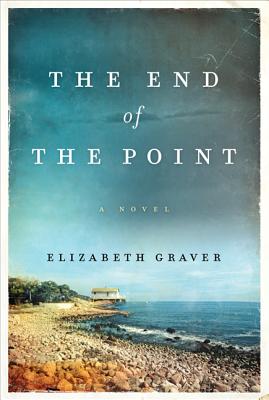
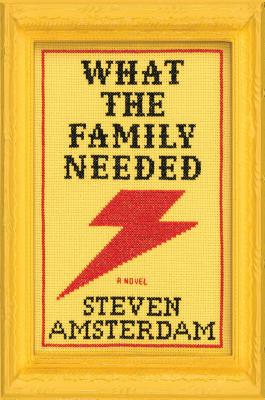
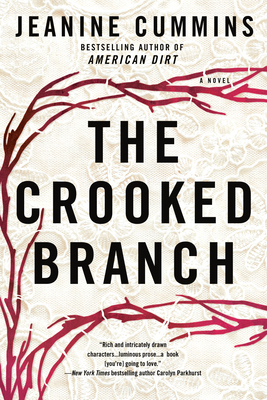
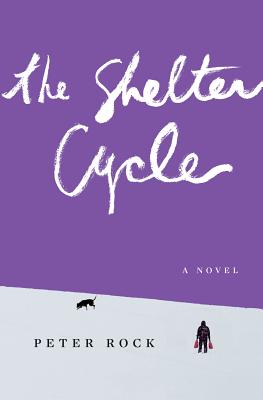
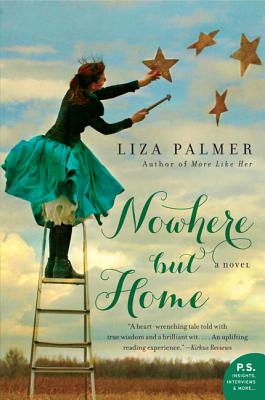
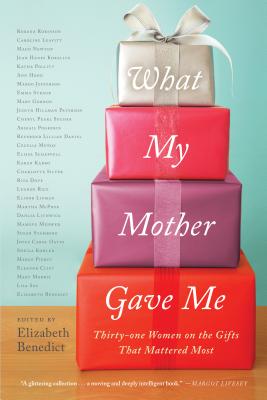
No comments:
Post a Comment